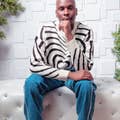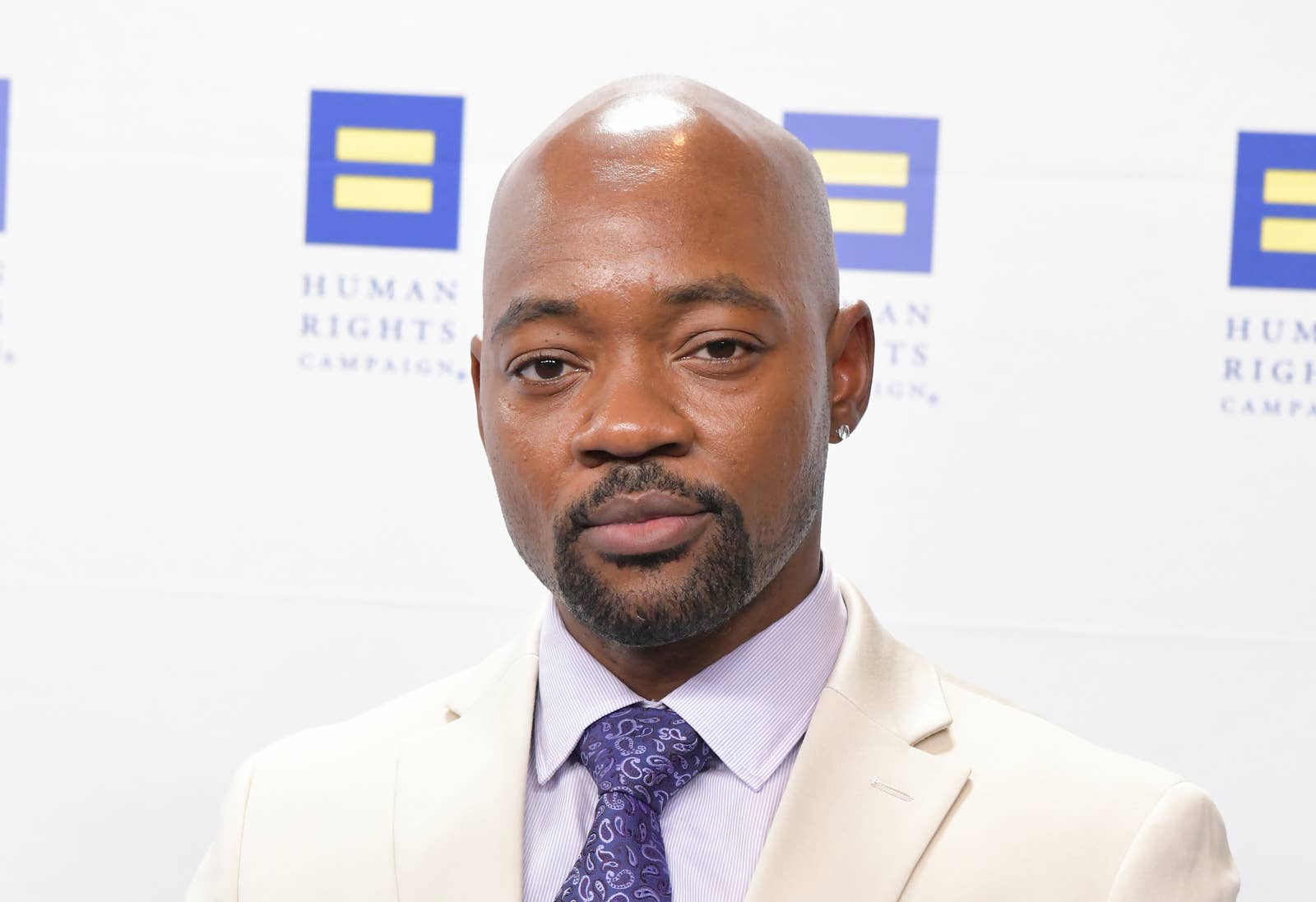
Brian Michael Smith is accustomed to breaking barriers. In 2020, he made waves as the first openly trans man of color to secure a series regular role on network television, portraying Paul Strickland, a firefighter, in FOX's 9-1-1: Lone Star. The subsequent year, Brian achieved another milestone by becoming the first trans man to be featured as one of People magazine's sexiest men alive. In celebration of Black History Month, I spoke to Brian about being a Black queer trailblazer, his stance on cisgender actors playing transgender roles, and so much more. Check it out ahead.
Editor's Note: This interview has been edited for length and clarity.
BuzzFeed: You made history as the first Black and openly trans man to have a series regular role on network television. How do you process that?
Brian Michael Smith: I feel a sense of honor. I never saw anybody on screen who was exactly like me so there was a lot of confusion in my life about who I was. There was a sense of loneliness, because I thought, "There must not be anybody else like me. There must be something wrong with me if I'm the only person like this." As someone who grew up watching a lot of television and whose worldview has been shaped by things I've seen on TV, I recognize the power of it. Seeing people do certain things on screen allowed me to imagine possibilities for myself down the road.
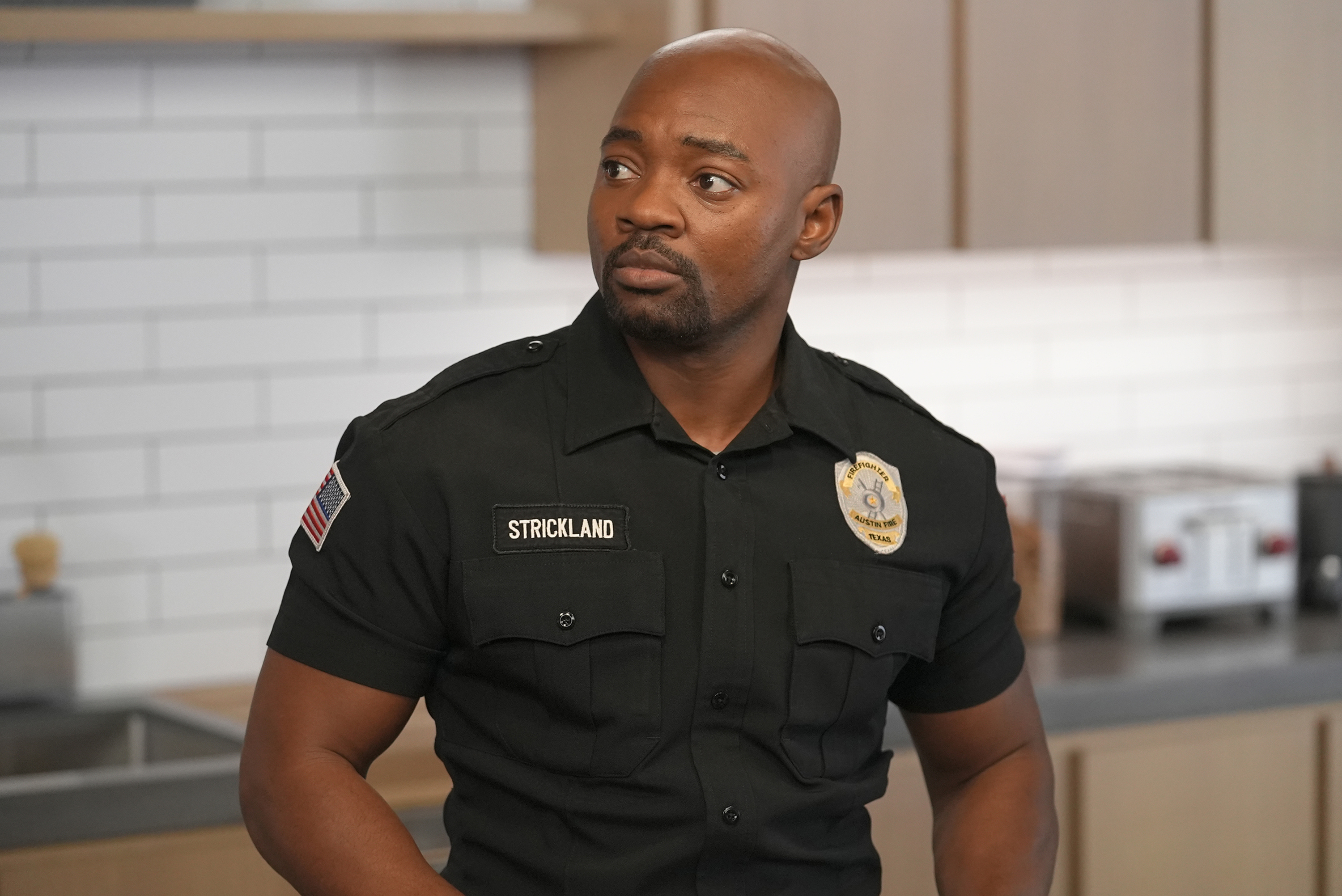
Did you ever think about what your impact would be as a Black trans actor?
When I booked 9-1-1: Lone Star, I thought, "I am doing something that has never been done before." Broadcast television is everywhere, so I knew that it was an opportunity for me to reach people who were probably feeling the way I felt years ago. It's been incredible knowing the impact on people who are trans like me, and for people who have always felt like an outsider. They get to see me play a character who has a full life and is successful. It's just a compounding force of positivity that I'm glad I can bring.
Unfortunately, trans people haven't always been portrayed in a positive light in media.
I want to provide the counterbalance to the negativity that's out here because it impacts real lives. Black trans women are murdered because of these mischaracterizations of the trans experience and what femininity can be. Laws to prevent trans people's rights are being written based on mischaracterizations. Counterbalancing the negativity is my mission, artistry, and life's work.
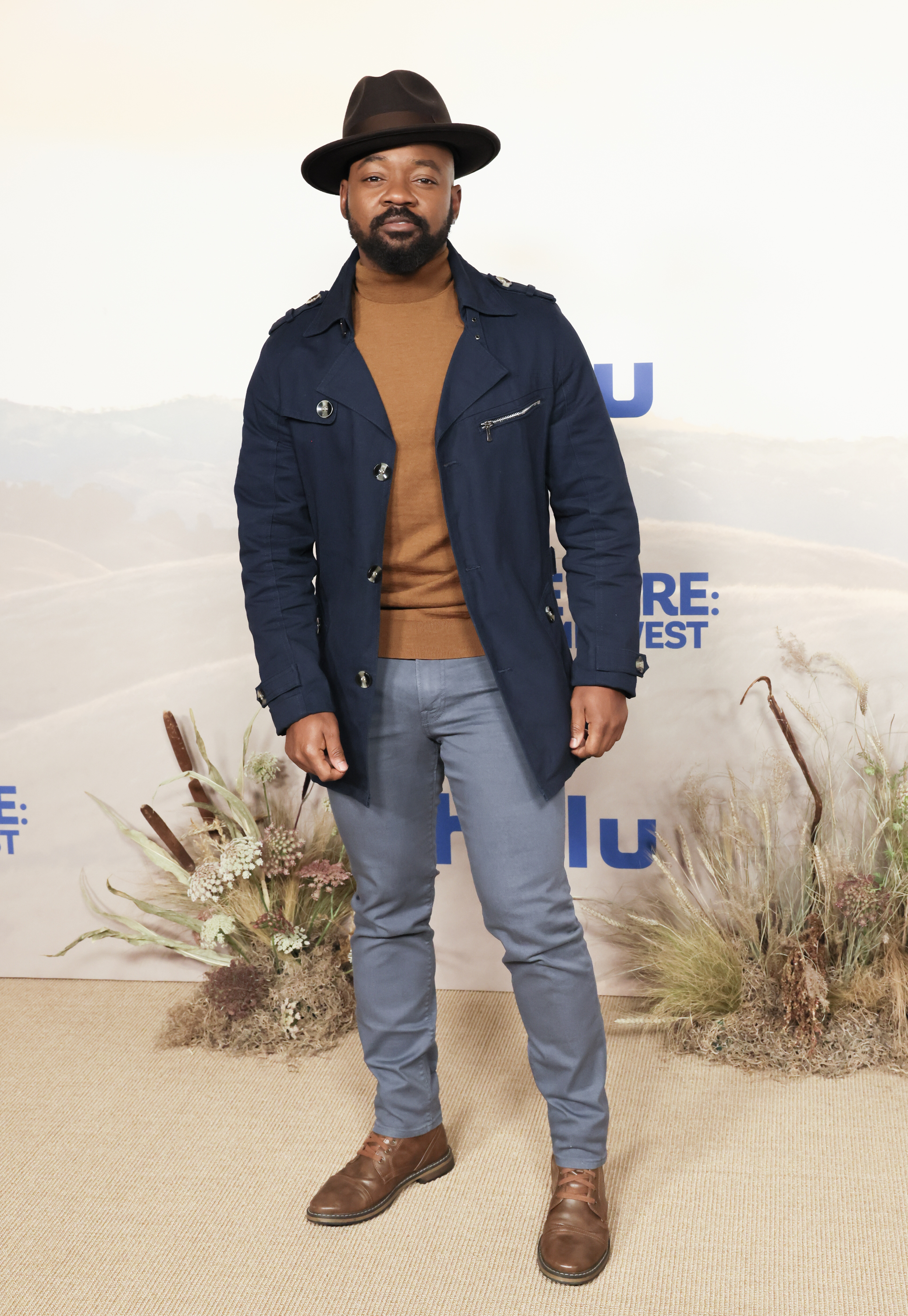
Do you prefer playing trans characters?
I enjoy being able to play trans characters, but I also enjoy being able to play cisgender characters because of what I'm able to bring. It'll be different because I'm going to filter that character through my experiences. My take on being a man is going to factor into the role, and it can add to whatever the story is, or what the character's journey is that you might not have thought about, which is great.
It's the same thing for Black actors. Some roles are written with white actors in mind, but when a Black actor auditions for it, [casting directors] are like, "Oh." The nuances [for the character] will be there based on what that actor is bringing to it through their experience.
What are your thoughts on cisgender actors portraying trans people?
At this time, I feel cisgender actors should not play trans characters until we get some equity. There are so few trans roles, and there's still a very strong bias against a trans person playing a cisgender character.
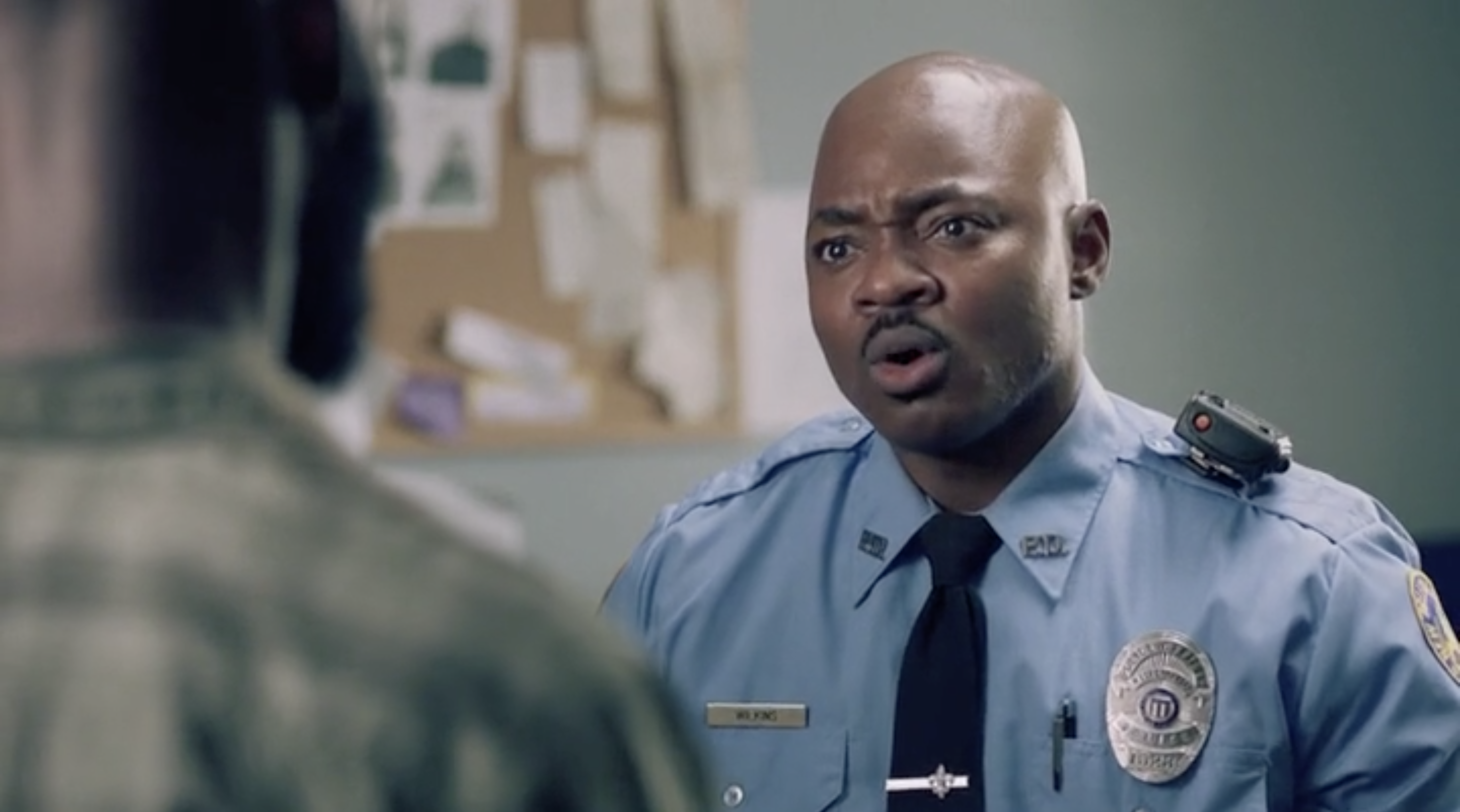
You became a household name from your role as Toine Wilkins in Queen Sugar. What connected you to the character?
Before joining, I watched Season 1 of Queen Sugar, and I said, "This is it." I loved the characters and the explorations of Black family traditions and dynamics. Then, a friend told me they were casting for the role of a Black trans police officer for Season 2. I remember feeling like the universe conspired to bring that role to fruition. Especially a Black trans character that I knew was going to be portrayed in a very authentic and powerful light.
[Toine Wilkins] was a Black trans man living in his truth. He wasn't necessarily rolling around in the pain of his [trans] experience. That is powerful for me because a lot of the projects that have anything to do with trans people tend to focus on the pain or the victimization of trans people.
Did you receive any encouraging words from Queen Sugar's creator, Ava DuVernay?
Before signing any paperwork, one of the first emails I received was from Ava, who welcomed me into the Queen Sugar family. Not too long afterward, I ran into Ava again. We sat down and had a heartfelt conversation. Having that kind of support from her put the wind in my sails to continue on my path.
"Trans people are human beings, too."
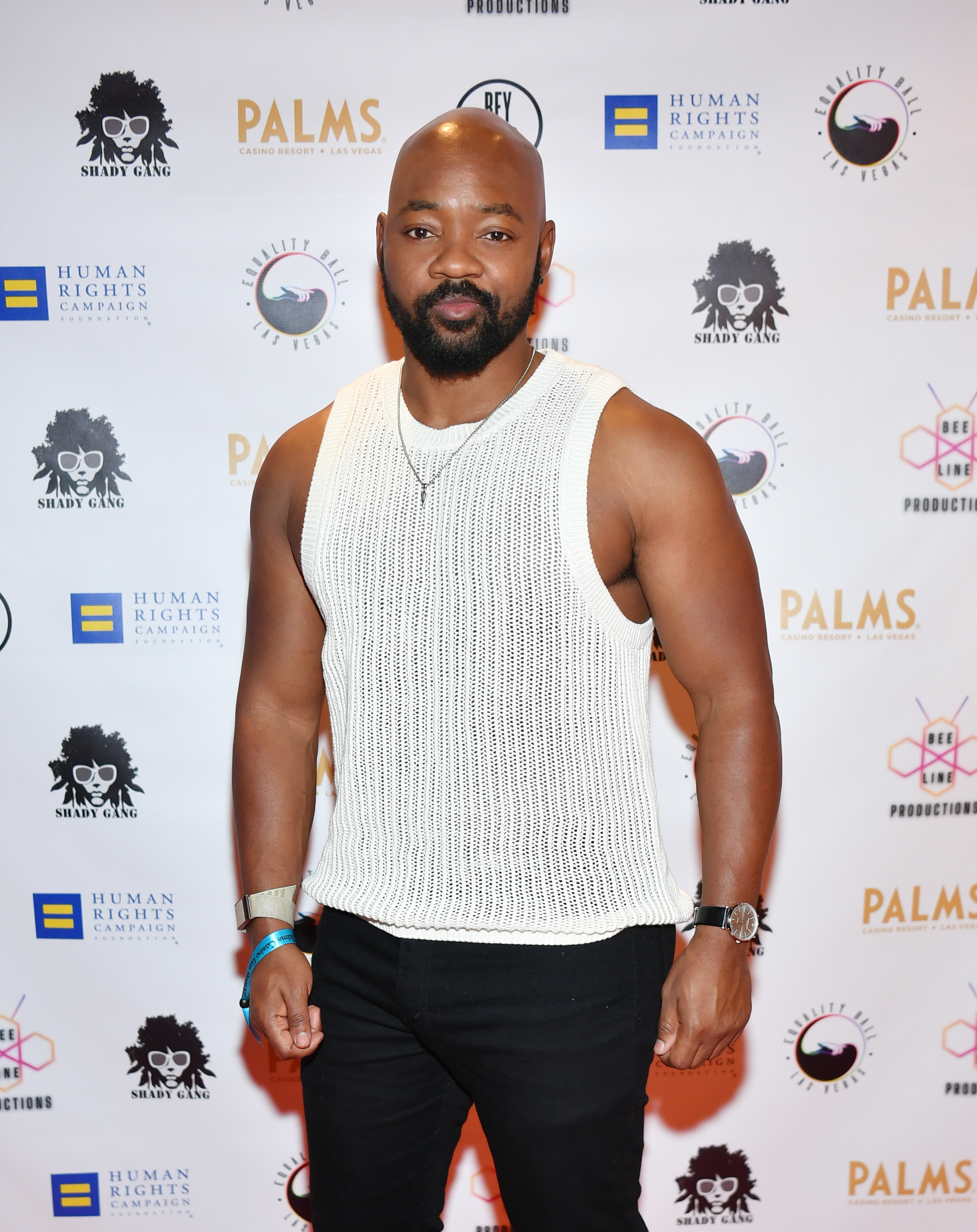
People magazine named you as one of the sexiest men alive in 2021. You're the first openly trans man to be included in that list.
Even though the Sexiest Man Alive is a fluffy title, it's validating to be recognized for who I am. I know [some] people ascribe values of what it means to be a man through that title. I never would have thought it would be possible to be recognized amongst cisgender men.
What did that recognition mean to you?
If I had seen a trans man in People magazine, I wouldn't have struggled nearly as much with accepting who I am. I wouldn't have had as much shame about my identity for so many years. It just highlighted how important it is to be visible. If I'm in this magazine, then I can reach people, show the human side of our experience, and remind people that trans people are human beings, too.
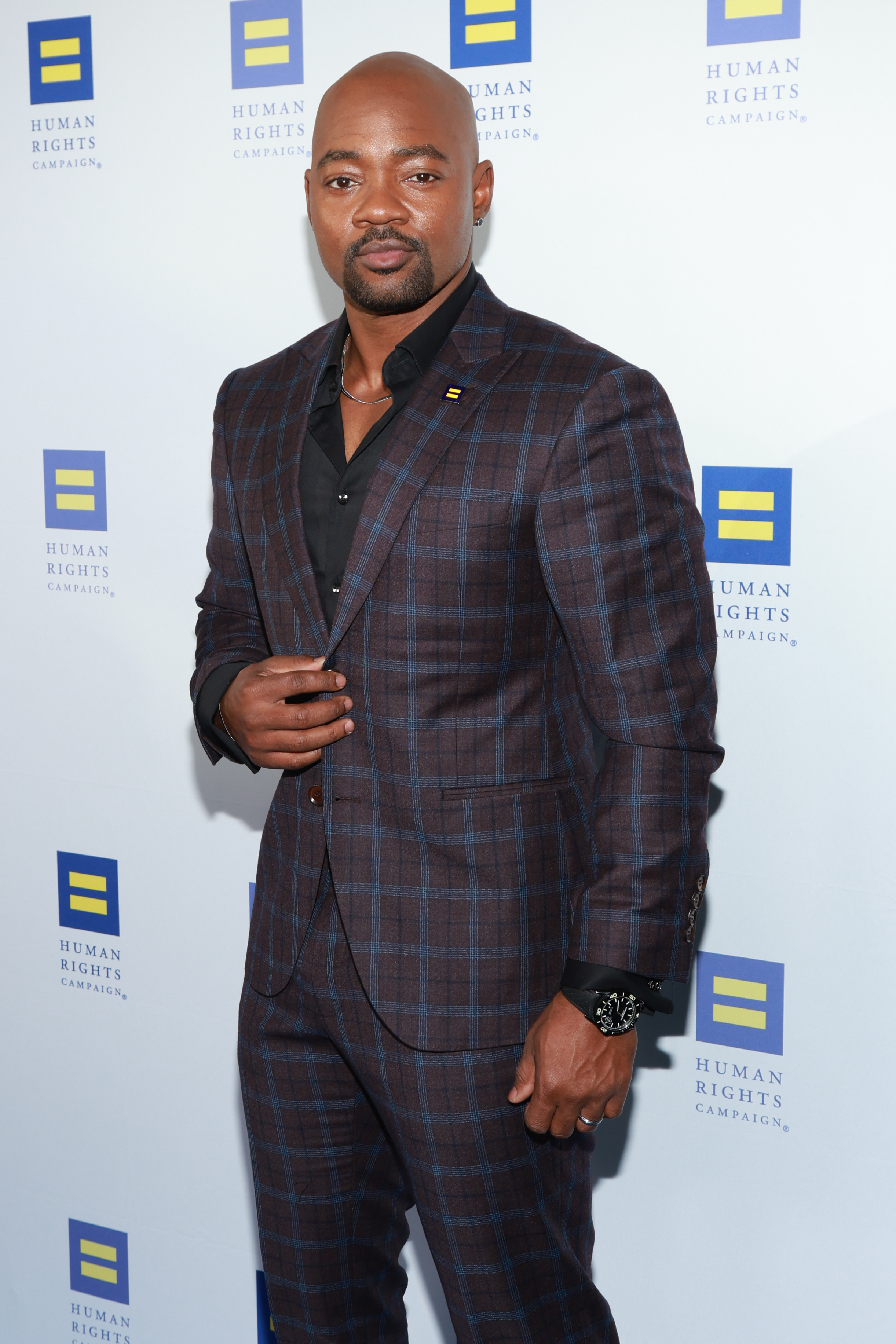
You played sports on the boys football team and girls track teams in high school without controversy. How did that shape your understanding of allyship?
Honestly, the only reason I've been able to do what I've done is because of my confidence from being supported by people who said, "I'm going to have your back no matter what." Being able to play on the boys' football team was amazing because it let me affirm who I was. My school held football tryouts, and anybody could participate. I have to give credit to the coaches. [Their philosophy was], "If you want to play, go out there, and let's see what you can do."
Some people argue that trans athletes should only be allowed to compete on sports teams that correspond with the sex they were assigned at birth. What do you say to that?
Do [those people] not realize the value of what they're taking away from young people when they tell them they can't play sports at the cost of who they are? Sports exist for a reason. The things that you learn from it are so invaluable. Sports build character and gamesmanship, and it builds resilience. It teaches you how to face adversities and move past them. We should not deprive anyone of that.
"Black trans men are working for the same rights as other Black people."
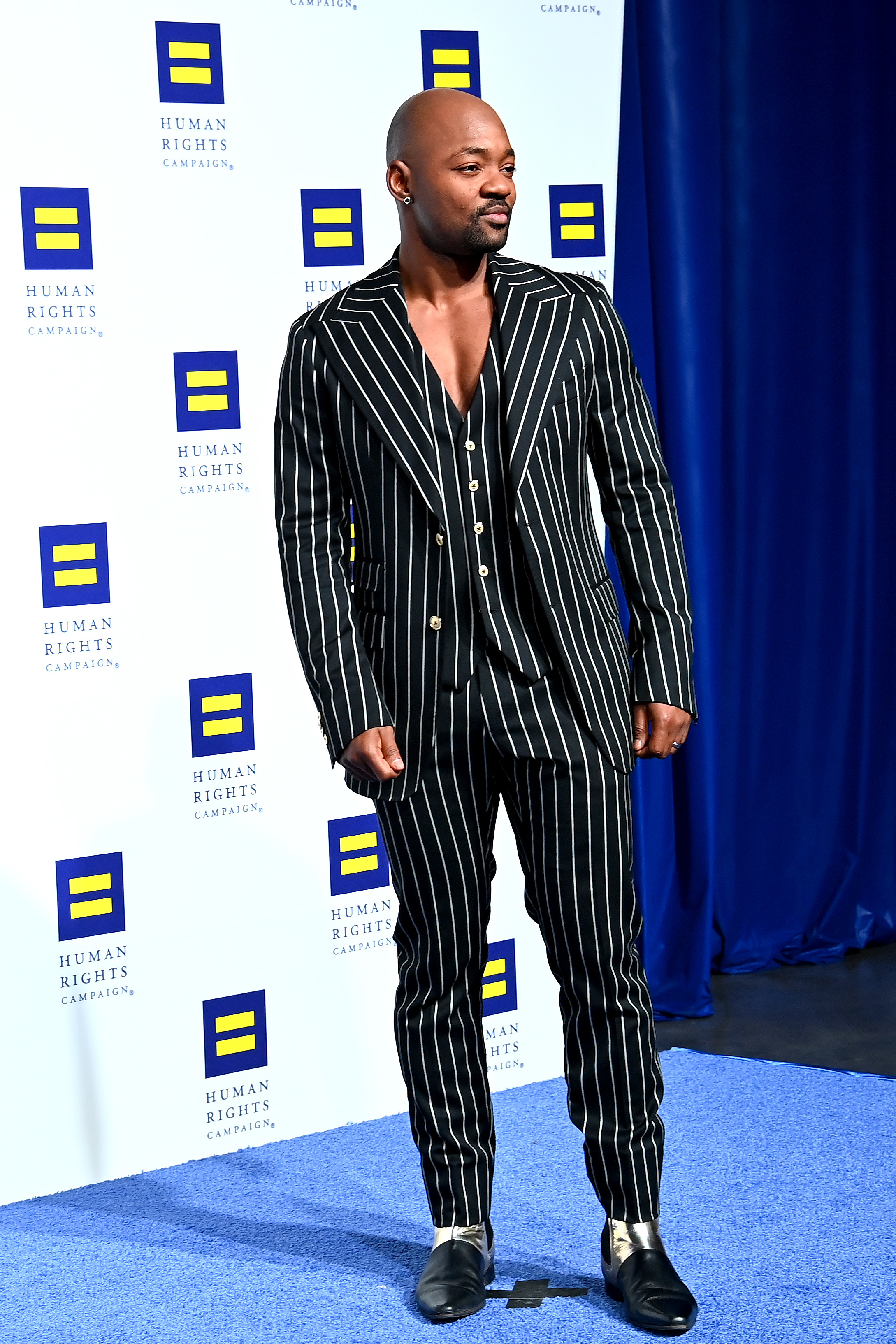
What more should be done to combat Black queer and trans erasure?
Continue to platform us and provide the funding to the people who [need it]. So many of my peers have written amazing, incredible projects, and they just can't get the funding. Stop pigeonholing our projects and saying that it's "niche" or that "they'll only reach a small audience." When authentic stories are told, people connect to them. Whether it's Pose or Kinky Boots, those projects were popular because people saw something that they needed to see about themselves, even though the characters' experiences were very different.
Who are other Black trans men you feel deserve recognition for their work?
Tiq Milan is a motivational speaker who has done a lot for others. Jevon Martin is an advocate who's been working for years in New York, helping build community in the ballroom scene. Marquise Vilsón is another trans man who is active in the ballroom scene. He's also an actor and uses his visibility to bring attention to the issues that matter.
Who is your Black queer icon?
Laverne Cox. She was a model for what's possible in terms of storytelling, and using her voice, beyond her work. She puts other people on. She'll executive produce other people's projects to ensure people have opportunities and platforms.
What do you want your contributions to Black history to be?
I want my contributions to reflect that Black trans men are working for the same rights as other Black people. Whether through the artists, advocacy, or just showing up to work, and providing for our families. We are a part of the fabric of Black people, and our voices matter, too.
Thanks for chatting with us, Brian! Be sure to keep up with Brian Michael Smith here.
You can read more Black, Out & Proud interviews here.


